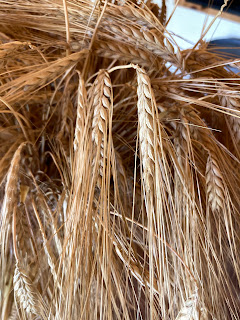One of the premiere maltsters in the state, Hudson Valley Malt at Germantown Beer Farm, was run by husband-and-wife Dennis Nesel and Jeanette Spaeth, and their son Dan. Near the banks of the mighty Hudson River, for the first time in more than 100 years, the ingredients were being grown and malted. They specialized in hand turned, artisanal, traditional floor malting. They malt locally grown barley, wheat, and rye for local brewers and distilleries who are committed to using local ingredients.
Farmer friend Ken Migliorelli explained the difficulties of trying to get local malts to Nesel. “He said he wanted to grow the grains for the brewery but that he would have to ship them four hours each way to be malted,” Nesel says. “That’s crazy! Eight hours round-trip—that’s what you call a carbon footprint. Jeanette and I did our homework and we decided a local malt house was needed.” They opened their doors in 2015, the first maltster in the Hudson Valley. “This is old-school heritage malting,” said Nesel,
Nesel converted the barley to malt the way it was done hundreds of years ago, “by spreading the water-soaked grain on his malt house floor and turning it with a shovel as it germinates to release the sugar needed for fermentation,” wrote Mary Esch for the Associated Press.
“We are connecting the public to the farmers through the brewers,” Nesel says. “The craft beverage movement is one of the biggest ways they’re helping our farmers. It’s built a really legitimate local beverage economy, and we love that.” Hudson Valley Malt worked with numerous award winning and highly acknowledged craft brewers and distillers.
“There are still brewers who will pay higher prices for craft malt. Hudson Valley Malting is a good example. Dennis creates a high value product, that’s grown, and traditionally floor malted… It’s almost hyper-local. And for that level of story, brewers and distillers will pay a higher price,” said Alan MacLeod. “Dennis’ malt is high quality. And he’s doing something incredibly special. He could never increase by an order of magnitude. But at his scale, he’s got something viable. He’s got a network of growers that he works with, and he’s got brewers and distillers that value his product, and have made it a part of their brand, that’s something really successful.”
Dennis Nesel and Jeanette Spaeth, and their son Dan











